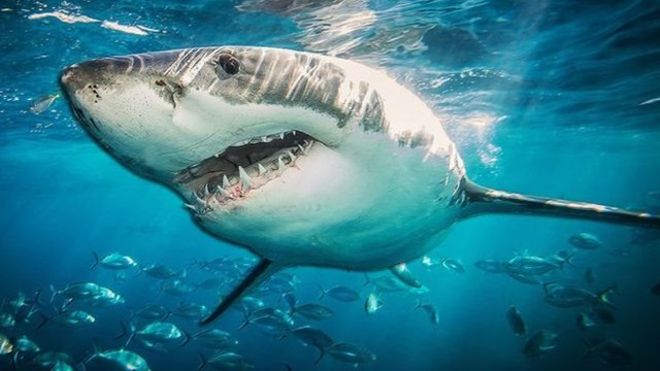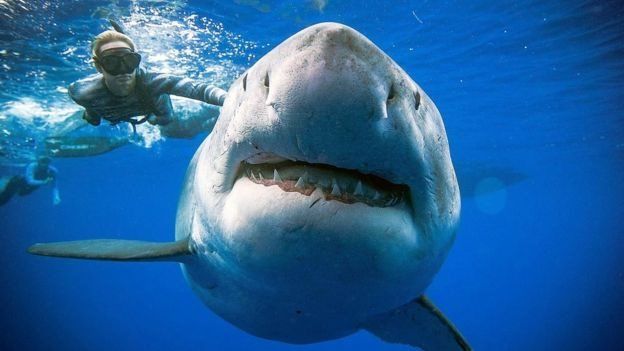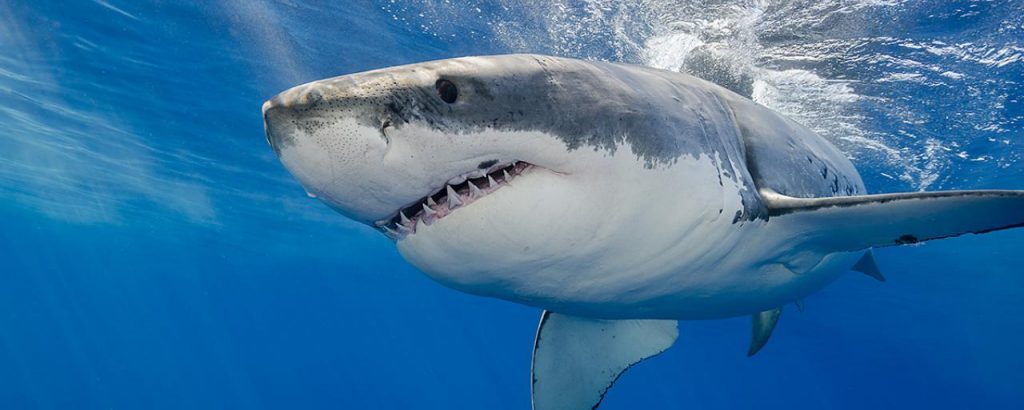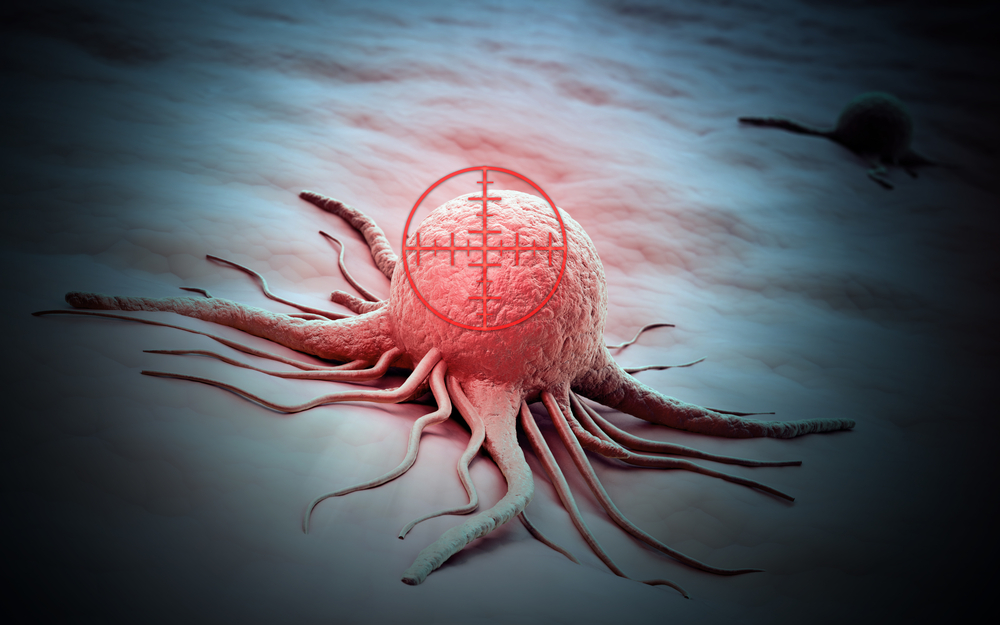鯊魚DNA的秘密對攻克人類癌症有何啟示
2019年 2月 22日
 鯊魚有自我修復機制
鯊魚有自我修復機制
一提到鯊魚,恐怕人們就會聯想到由史蒂文·斯皮爾伯格導演的美國驚悚經典片《大白鯊》。
但鯊魚與人類癌症之間有什麼聯繫呢?
科學家經過研究相信,大白鯊有可能可以幫助人類治療癌症。
根據首批繪製的大白鯊DNA(脫氧核糖核酸)揭示,其DNA中的「突變」可以保護大白鯊免受癌症和其它疾病的困擾。
科學家希望通過更多的研究,使其研究結果能夠幫助治療人類一些與衰老有關的疾病。
大白鯊在進化過程中具有修復其DNA的能力,這一點我們人類卻沒有。
這一研究是由美國佛羅里達州諾瓦東南大學(Nova Southeastern University in Florida)「拯救我們海洋基金會鯊魚研究中心」(Save Our Seas Foundation Shark Research Centre)的科學家小組進行的。
* 人類未來真能找到長生不老秘訣嗎?
*人體奧秘:為什麼有人生來具備超凡能力
*改變不良生活方式和習慣3成癌症可避免
鯊魚基因
 鯊魚即使受了重傷也能很快恢復。
鯊魚即使受了重傷也能很快恢復。
人類不穩定的基因使我們容易患上癌症以及與老年相關的疾病。
而鯊魚基因中有什麼特別保護機制是我們人類所缺乏的呢?
鯊魚已經生存了許多年,它們在1600萬年前就開始「稱霸海洋」。有些品種的鯊魚可以長達20英尺,重達3噸。
為了能永遠處在巔峰狀態,鯊魚在進化過程中DNA可以自我修復,而且對出現的破損容忍性也更強。
該研究小組的負責人之一史夫基博士表示,基因組不穩定是人類許多嚴重疾病中所面對的一個重要問題。
但是有些長壽型動物,例如鯊魚等大型動物似乎在進化過程中找到了對策來維持基因組的穩定。
我們人類可以從它們身上學到很多東西,因為有太多的信息等待我們去開發。這些信息將可能對人類對抗癌症和與老年有關的疾病有幫助。
同時,它還可以幫助人類改善創傷的治療。
* 基因改造雞的雞蛋含有防癌藥物
*解讀諾獎成果:免疫療法為癌症患者帶來新希望
*癌細胞擴散轉移成噩夢 科學家發現其抱團突圍機制
鯊魚的DNA比人的DNA大一倍半,意味著鯊魚DNA中攜帶的一些密碼我們人類還暫時沒有。
科學家希望能破解這些秘密,讓它們服務於人類。
由於鯊魚具有從重傷中迅速恢復的能力,專家相信它可以用於幫助人類的傷口癒合和血塊凝固問題。
這或許還有助於減輕人們對鯊魚的偏見。其實,人類殺死的鯊魚數量遠遠多於鯊魚攻擊人類的數量。
此外,研究還顯示鯊魚在人類對付全球氣候變暖中扮演重要角色。由於鯊魚的捕食,有效地控制了海洋小生物的數量,因為這些海洋生物釋放出更多的二氧化碳。
大象
 專家強調,同吸煙相比其風險率要小得多
專家強調,同吸煙相比其風險率要小得多
那麼,是否體積越大,細胞發生變異的可能性就越大呢?
之前有研究稱,個頭高的人從理論上來講,體內發生癌變的可能性要高於相對矮小的人。
對此,一種主要的理論解釋是個頭高的人體內的細胞數量也更多。
因為通常來講,細胞越多其在複製和分裂的過程中出現基因突變的可能性就越高。
但專家強調,同吸煙相比其風險率要小得多。
同人類相比,大象的體積要大得多,而且平均可以活到60到70歲。大象的細胞數量要比人類多100倍,但為什麼大象患癌症的比例卻比人類低得多?
美國猶他大學的兒科腫瘤學家希夫曼(Joshua Schiffman)發現,大象有40份TP53基因,該基因幫助抑制腫瘤細胞的生長和擴散。
相比之下,人類和大多數其它動物只有兩套TP53基因。因此,希夫曼和其研究伙伴懷疑,這些多餘的基因備份可能幫助大象抗癌。
顯然,有些動物在進化過程中找到了對付癌症的「聰明戰術」,或許人類也可以從中學習和借鑒,讓它為人類服務,因為畢竟人類是「最聰明的動物」。
Decoding the Great White Shark Genome Gives Insights into Human Disease

The sight of a great white shark usually inspires terror. They can reach up to 20 feet in length and weigh as much as 2,000 pounds. An apex predator, great white sharks have the ability to dive below 3,000 feet.
And, their self-repairing DNA makes them incredibly resistant to cancer and heal quickly after an injury.
In theory, larger animals are at a greater risk to develop cancer because of both their size and long lifespans. Great white sharks can live more than 70 years.
However, large-bodied animals, such as great white sharks and elephants, are no likely to develop cancer than humans. Researchers hope that learning more about the superior cancer-protective abilities of these animals could help humans with cancer and other diseases.
“Understanding how non-human vertebrates that have been around for a long time have evolved superior mechanisms for combating diseases could provide guidance for gene-based drug development for humans.” Mahmood Shivji, research scientists and Director of Nova Southeastern University’s Guy Harvey Research Institute and the Save our Seas Shark Research Center, said to Laboratory Equipment.
A research team led by scientists from Southeastern University’s (NSU) Save Our Seas Foundation Shark Research Center and Guy Harvey Research Institute (GHRI), Cornell University College of Veterinary Medicine, and Monterey Bay Aquarium recently sequenced the entire genome of the great white shark.
The findings were published in the Proceedings of the National Academy of Sciences.
The genome—which measured more than one and half times the size of the human genome and consisted of 4.63 billion base pairs—revealed multiple sequence adaptations and genome stability genes that could aid in wound healing and cancer protection in people.
The great white shark genome contains a high number of a particular kind of jumping gene known as LINE. Typically, LINE creates breaks in DNA—causing genome instability—when they insert themselves into various parts of the genome. But, great white shark genomes are able to counteract genetic instability with stabilizing genes involved in DNA repair, damage response and damage tolerance.
Additional molecular adaptations were found in the shark’s genes that controlled genome stability. Genetic instability, which occurs when there is accumulated DNA damage, has been associated with numerous cancers and age-related diseases in people.
The research also showed that great white sharks display positive selection and gene content enrichments in genes associated with wound healing, including one involved with blood clotting. Sharks are well-known for their ability to rapidly heal after being wounded.
Future research will involving placing shark genes into human cells exposed to powerful cancer-causing agents in the laboratory.
The researchers emphasized that shark-related products, like cartilage pills, won’t improve health and puts the conservation of sharks at greater risk. Great white sharks are currently listed as “vulnerable to extinction” by the International Union for the Conservation of Nature.
“Our findings do not mean that eating sharks will help cure human diseases. These mechanisms that sharks have are at the level of their DNA,” Shivji cautioned. “Thinking that eating sharks will be beneficial for humans is as silly as thinking that eating sharks will make us be able to breath underwater or swim better.”
Researchers from California State University, Monterey Bay, Clemson University, University of Porto, Portugal, and the Theodosius Dobzhansky Center for Genome Bioinformatics, Russia also contributed to this research.
文章來自: BBC (中文)
laboratoryequipment (Eng)



























 親友們無不感動落淚。(互聯網
親友們無不感動落淚。(互聯網




